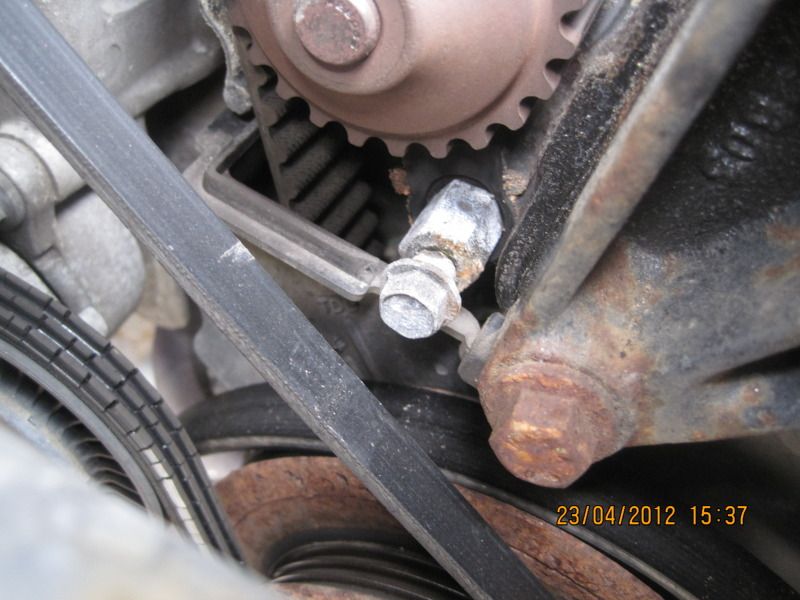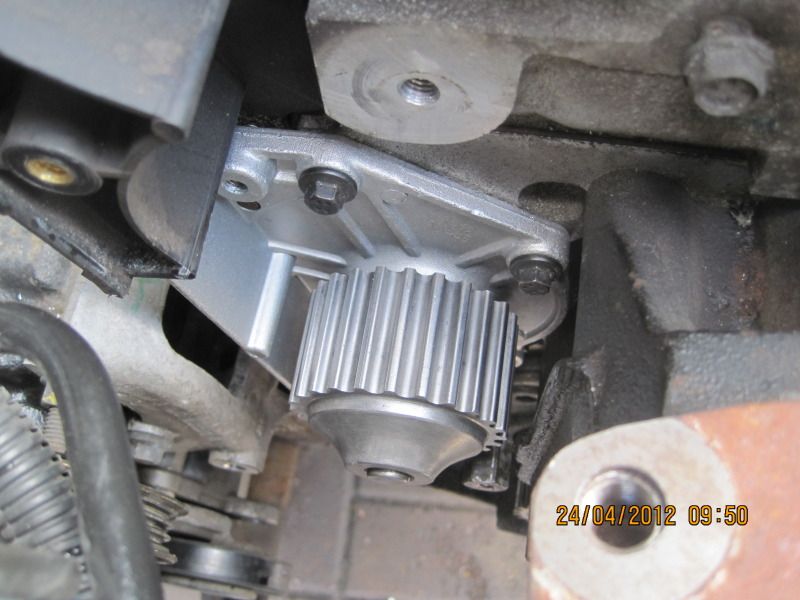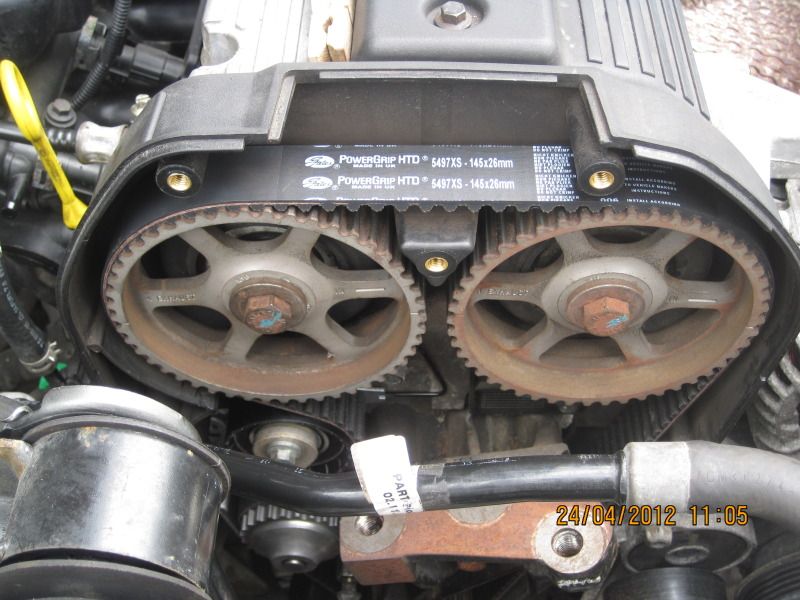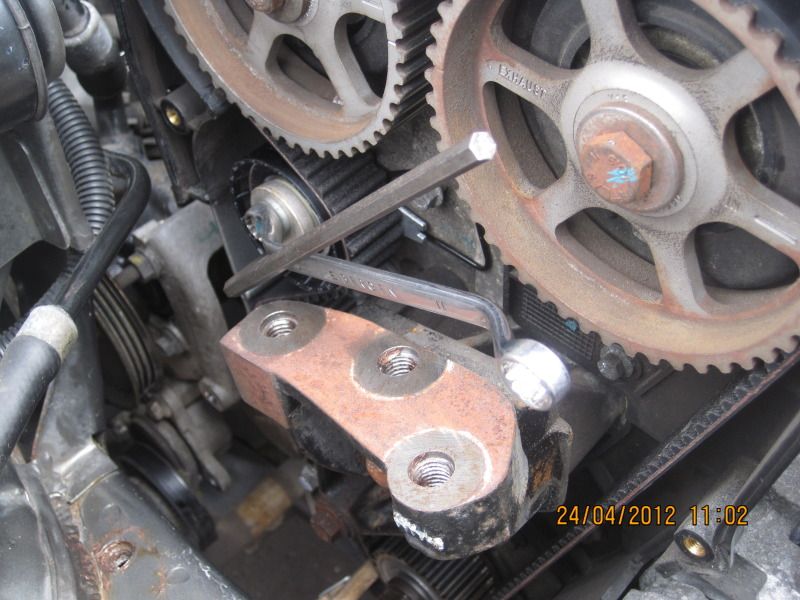how to tell if head gasket is gone?
Discussion
Carrot said:
RWD cossie wil said:
Have a look at the front of the bonnet, if it says "Rover" , then I would suggest that the head gasket has gone.
This.I have yet to meet a standard rover owner (including one of my own) that has not had at least one failure in its miserable life.
Devil2575 said:
Carrot said:
RWD cossie wil said:
Have a look at the front of the bonnet, if it says "Rover" , then I would suggest that the head gasket has gone.
This.I have yet to meet a standard rover owner (including one of my own) that has not had at least one failure in its miserable life.
buzzer said:
Devil2575 said:
Carrot said:
RWD cossie wil said:
Have a look at the front of the bonnet, if it says "Rover" , then I would suggest that the head gasket has gone.
This.I have yet to meet a standard rover owner (including one of my own) that has not had at least one failure in its miserable life.
Rover K-series gaskets go, because the engines have a tiny water jacket, and need the coolant system to be looked after. Most Rover owners rarely lift the bonnet, so don't notice the coolant is low, or the water pump is dead until the head gasket melts. Also driving the crap out of the car from cold leads to thermal shock when the thermostat opens, which doesn't help the gasket either.
A well maintained, well driven K-series won't melt it's head gasket. Ever.
A well maintained, well driven K-series won't melt it's head gasket. Ever.
If you buy a car with a K-series engine you IMO need a discount if there isn't an invoice with it showing a professionsl head gasket change and replacement of the weak OE locating dowels.
What's most significant is that when there's HGF failure on a K-series you DON'T refit with the original OE spec parts. Rover uprated the components later in production because the problems were becoming so widespread and the solution was so obvious.
Note: It's not like the Nikasil issue (Jaguar,BMW) which affected some cars early in their lives. The cars which were going to fail, failed quite early and for reasons related to high sulphur petrol. The K-series problem is different - a fundamental design flaw - so it's still out there. Some people say that if the HG hasn't failed already, it will. Probably too broad a generalisation to be 100% true but a good rule of thumb. Just Google the words "freelander head gasket" if you have any doubts. Some info about the K-series problem on this link,
http://www.freelanderspecialist.com/freelander-pro...
What's most significant is that when there's HGF failure on a K-series you DON'T refit with the original OE spec parts. Rover uprated the components later in production because the problems were becoming so widespread and the solution was so obvious.
Note: It's not like the Nikasil issue (Jaguar,BMW) which affected some cars early in their lives. The cars which were going to fail, failed quite early and for reasons related to high sulphur petrol. The K-series problem is different - a fundamental design flaw - so it's still out there. Some people say that if the HG hasn't failed already, it will. Probably too broad a generalisation to be 100% true but a good rule of thumb. Just Google the words "freelander head gasket" if you have any doubts. Some info about the K-series problem on this link,
http://www.freelanderspecialist.com/freelander-pro...
buzzer said:
Or you are in denial
I cant think of any other car that has such problems with Head Gasket failure...
All Rovers suffer from head gasket problems? That covers a lot of engine types, so Rover must have been terribly unlucky: A series(Mini), T Series (200,400,600), Honda D series (Rover 216), Honda 1.8, 2.0 and 2.3 (Rover 600), L series (Rover 200,400,600), M series (200,800), Honda 2.5 and 2.7 V6 (800), KV6 (45, ZS, 75, ZT). Probably missed a few as well.
I cant think of any other car that has such problems with Head Gasket failure...
I'd be the first to admit that the original IL4 K-series (and very early KV6 in the 800) could suffer from HGF for reasons that are now pretty well understood. A properly installed uprated gasket should not fail again, if it does it almost inevitably points to the (lack of) skill of the person that installed it.
Unchecked coolant leaks can cause head gasket failure through overheating, but this is hardly the fault of the head gasket and also applies to most engines.
I know numerous people (including myself) who have had Rovers with no head gasket failure. However, these people tend to be fairly conscientious owners that look after their cars and check fluid levels etc. regularly.
Captain Muppet said:
buzzer said:
Devil2575 said:
Carrot said:
RWD cossie wil said:
Have a look at the front of the bonnet, if it says "Rover" , then I would suggest that the head gasket has gone.
This.I have yet to meet a standard rover owner (including one of my own) that has not had at least one failure in its miserable life.
Rover 100 (Don't laugh...) owned by me - R reg 30k miles on the clock, Failed 2004
Rover 218 Owned by ex business partner, 04 plate 50k miles, failed 2006 Repaired by garage, failed again at 65k miles in 2007
Rover 214 - 53 plate 25k miles owned by step grandparents - Failed in 2008 and failed again last week.
Rover 45 2006 plate - 35k miles owned by a colleague at my last work place - always joking it was going to go. One day he drove in with a loan car looking pissed off - you guessed it HGF.
Rover 25 (not sure on plate) owned by another colleague at the same office - HGF
Not going to list the various Landrover cars either.
Neighbours 2006 Rover 45, HGF initially repaired by a nationwide autocentre, they buggered it up so badly it was sent to a Rover dealer to repair. 2 years later, started losing water again...
Grandmothers Rover 214, 2009 they changed cars as it started losing water and was running a bit funny - granted may not have been a HGF but we couldn't find any initial leaks when we took a quick look at it.
Lets think here - a lot of my friends speak to me about mechanical problems as I have all the diagnostic gear, and do a lot of the work myself, and I normally have a sniff kit kicking around. Out of all the mechanical problems I can think of with the array of other cars - the only HGF's that I know of are -
My R reg Corsa - Purchased in 2009 for virtually nothing with genuine 50k miles on the clock. I knew it was a HGF hence so cheap. Fixed and has done 20k miles so far with no issues.
My Kawasaki ZZR250 motorcycle years ago, doing hypothetically higher than motorway speeds all the way across the country didn't appeal to it much

So whilst it is absolutely right that ALL rovers are not going to have HGF, it is pretty well established that they will do with a high degree of certainty, unless the reenforced gasket was used to repair it (and even then I have heard of them going)
Don't get me wrong, I know all cars have their quirks, but Rover has the most expensive and annoying one of all when it happens for the standard car. I am not a fanboy of any cars so I don't really care either way what people generally think of Rover / Vauxhall / Ford etc - but based on reliability, I certainly would not buy a Rover.
A head gasket should NOT be an interim service item....
miniman said:
HiSpeedGas said:
As buzzer says but also remove oil filler cap, if it looks like egg mayo then the gasket has gone.
Or, the car has done a lot of short journeys recently. Forget all the mayo advice and get it sniff tested if you want to be sure.
St John Smythe said:
miniman said:
HiSpeedGas said:
As buzzer says but also remove oil filler cap, if it looks like egg mayo then the gasket has gone.
Or, the car has done a lot of short journeys recently. Forget all the mayo advice and get it sniff tested if you want to be sure.
Also short trips does this, as i found out - my old BMW (less than 10 miles per day for 3 months) was covered in mayo, but on inspection perfectly fine.
I personnally would look for discoloured coolent AND mayo on the oil filler. Also look at the gaskets on the exhuast and general condition of the rubber piping. If it looks ropey, chances are the head will be too. But this is dependant on the type of car, for example an old merc would be fine, an old rover not so much
buzzer said:
Or you are in denial
I cant think of any other car that has such problems with Head Gasket failure...
I know many K series engined Rovers that have never suffered it including the one I used to own. 
I cant think of any other car that has such problems with Head Gasket failure...
I also own a PD 130 VW diesel that has tried to destroy itself when the turbo seals blew. My workmate has the same engine in his Golf and it has cost £1200 so far on a head gasket and other faults. My cousins CR 170 bhp diesel SEAT has cost £2000 for new injectors and another workmate has the 140bhp diesel Passat and it's injectors have just failed.
Are all VW diesels rubbish?
Give me the price of a K series repair any day compared to what I'm having to pay out!
Rammy76 said:
buzzer said:
Or you are in denial
I cant think of any other car that has such problems with Head Gasket failure...
I know many K series engined Rovers that have never suffered it including the one I used to own. 
I cant think of any other car that has such problems with Head Gasket failure...
I also own a PD 130 VW diesel that has tried to destroy itself when the turbo seals blew. My workmate has the same engine in his Golf and it has cost £1200 so far on a head gasket and other faults. My cousins CR 170 bhp diesel SEAT has cost £2000 for new injectors and another workmate has the 140bhp diesel Passat and it's injectors have just failed.
Are all VW diesels rubbish?
Give me the price of a K series repair any day compared to what I'm having to pay out!
In the last 2 weeks we have had 5 VW, 1 lost oil pressure and damaged the crank, 1 needing a new oil pump, 2 with injector failing and another with running problems and idleing problems which had to have a idle control valve, egr valve and various other parts either cleaned or replaced.
If the poster above doesn't like rover then why have so many and so many basicly 200 series rovers.
Carrot said:
Captain Muppet said:
buzzer said:
Devil2575 said:
Carrot said:
RWD cossie wil said:
Have a look at the front of the bonnet, if it says "Rover" , then I would suggest that the head gasket has gone.
This.I have yet to meet a standard rover owner (including one of my own) that has not had at least one failure in its miserable life.
Rover 100 (Don't laugh...) owned by me - R reg 30k miles on the clock, Failed 2004
Rover 218 Owned by ex business partner, 04 plate 50k miles, failed 2006 Repaired by garage, failed again at 65k miles in 2007
Rover 214 - 53 plate 25k miles owned by step grandparents - Failed in 2008 and failed again last week.
Rover 45 2006 plate - 35k miles owned by a colleague at my last work place - always joking it was going to go. One day he drove in with a loan car looking pissed off - you guessed it HGF.
Rover 25 (not sure on plate) owned by another colleague at the same office - HGF
Not going to list the various Landrover cars either.
Neighbours 2006 Rover 45, HGF initially repaired by a nationwide autocentre, they buggered it up so badly it was sent to a Rover dealer to repair. 2 years later, started losing water again...
Grandmothers Rover 214, 2009 they changed cars as it started losing water and was running a bit funny - granted may not have been a HGF but we couldn't find any initial leaks when we took a quick look at it.
Lets think here - a lot of my friends speak to me about mechanical problems as I have all the diagnostic gear, and do a lot of the work myself, and I normally have a sniff kit kicking around. Out of all the mechanical problems I can think of with the array of other cars - the only HGF's that I know of are -
My R reg Corsa - Purchased in 2009 for virtually nothing with genuine 50k miles on the clock. I knew it was a HGF hence so cheap. Fixed and has done 20k miles so far with no issues.
My Kawasaki ZZR250 motorcycle years ago, doing hypothetically higher than motorway speeds all the way across the country didn't appeal to it much

So whilst it is absolutely right that ALL rovers are not going to have HGF, it is pretty well established that they will do with a high degree of certainty, unless the reenforced gasket was used to repair it (and even then I have heard of them going)
Don't get me wrong, I know all cars have their quirks, but Rover has the most expensive and annoying one of all when it happens for the standard car. I am not a fanboy of any cars so I don't really care either way what people generally think of Rover / Vauxhall / Ford etc - but based on reliability, I certainly would not buy a Rover.
A head gasket should NOT be an interim service item....
RWD cossie wil said:
Have a look at the front of the bonnet, if it says "Rover" , then I would suggest that the head gasket has gone.
I hate to admit it but that gave me a little chuckle! 
I would wager a bet a large % of supposed Rover HG failures are in fact the usual seeping water pumps, pipework, thermostats etc because the minute a Rover owner mentions coolant loss or overheating...
HEAD GASKET HEAD GASKET HEAD GASKET

Nice little earner

Studio117 said:
mgjon, what do you think of that ^^^???
Not a lot. If the cylinder head gasket 'fails' on any of the MGs and Rovers in my family, it will be a first since the year dot.What I will add though, in my lengthy experience with cars and drivers, there are far more unreliable car drivers and car users than unreliable cars irrespective of the marque.
Do not take my word for it, RAC and AA call out stats support this.
Back in January I bought a low mileage MG ZS120 (45,000 miles ) ex-dealership demo car and previously owned by a nice lady so almost one owner since new. Her husband decided to sell as it was slowly losing coolant so must be a "They all do that" K-Series Scenario with no obvious signs or other coolant leaks. The price was 'right' so I took a chance and bought it untried and unseen on the basis that even if the gasket does need replacing, no big deal. Yes, the car is/was losing coolant and needed a little topping up during the past three months of my use. No tell tale drips under the Water Pump under the car when parked up after a run ... so cannot be a worn or wearing Water Pump ... yeah ... right? WRONG!
I've been using it daily and obviously ever watchful for any signs of the "They all do that" scenario. None found.
Previous owner quite clued up about cars and had bought a Timing Belt and Tensioner which was still in the boot as he had not arranged to have it fitted when I bought the car.
A few days ago I decided to fit that new Timing Belt and Tensioner as well as a new Water Pump ( 20 quid ) as the job is a case of three birds with one stone.
Here's a picture showing the old Water Pump before I replaced it. Note the white-ish residue on the 'special design' Bolt below the pump:~

That Bolt is mounted through the U-Shaped Channel at the bottom of the Water Pump known as the "Evaporator". Guess what it does ....
 .... it collects those first drops of coolant escaping from the wearing Water Pump and ... evaporates them. I believe it's to avoid coolant contamination of the Timing Belt which also drives the Water Pump. That white residue is dried up coolant ... so, no tell tale drops under the car to alert the observant car user. I fitted a new Water Pump, then Timing Belt and Tensioner as these pictures show respectively :~
.... it collects those first drops of coolant escaping from the wearing Water Pump and ... evaporates them. I believe it's to avoid coolant contamination of the Timing Belt which also drives the Water Pump. That white residue is dried up coolant ... so, no tell tale drops under the car to alert the observant car user. I fitted a new Water Pump, then Timing Belt and Tensioner as these pictures show respectively :~Newly fitted Water Pump :~

New Timing Belt :~

Adjusted the new Timing Belt Tensioner :~

.... and reassembled all the various parts removed for the job.
Used the car to tow a small trailer today for about fifty miles. Car ran sweet as anything. Coolant level unchanged.
One thing is a certainty, had the previous user carried on using the car so that when the Water Pump finally and very suddenly expired big time, as it would at Motorway speeds, coolant loss would be near total and very rapid at speed. Then guess what ... "They all do that" if not spotted by the user in time and they drive on with an engine without coolant.
Over the past ten years until I retired recently, I recovered on my trailer two work colleagues' cars. One a Toyota the other a BMW. Guess what, the Toyota did not need a new cylinder head gasket, it needed a complete new Cylinder Head assembly as well as gasket! The BMW needed a very expensive CHG replacement.
To be fair, I also recovered another work colleague's car which was a Rover. He drove on on the M5 after noticing steam coming from the bonnet which soon stopped and the temperature gauge returned to near normal because there was no coolant to be sensed... So what could possibly be wrong and drove on ...

Of course, the young fellow did not need just a gasket, he needed a replacement engine as he seized the original solid. As the poor thing severely overheated at Motorway Speed without coolant...
 Fortunately, my resourceful son was able to obtain one at reasonable cost and he was soon on his way for little financial outlay. Others less fortunate have no option but to pay up big time.
Fortunately, my resourceful son was able to obtain one at reasonable cost and he was soon on his way for little financial outlay. Others less fortunate have no option but to pay up big time.If anyone has read this far, thanks for your patience. One small request, please shout out loud...
Altogether now said:
.
They do NOT all do that!!!
.
They do NOT all do that!!!
.
Welllllll ~ it helps to pass the time when you get to my age ...

..
EDIT to add @ 20:59
I have now fitted about six water pumps to Rovers and MGs in the family and friends cars in recent years. Every new one I fitted did NOT have that evaporator. We need to see tell-tale evidence of a wearing pump under the car so if and when the time comes, not have those tell tale signs evaporated away.
Edited by MGJohn on Thursday 26th April 20:59
Rammy76 said:
Give me the price of a K series repair any day compared to what I'm having to pay out!
Yes, that's exactly the point. HG fix on a K-series is a well understood remedy and the price is known. Hence my earlier comment that if it hasn't alreday been repaired you just need a suitable discount to cover the risk.SuperHangOn said:
RWD cossie wil said:
Have a look at the front of the bonnet, if it says "Rover" , then I would suggest that the head gasket has gone.
I hate to admit it but that gave me a little chuckle! 
I would wager a bet a large % of supposed Rover HG failures are in fact the usual seeping water pumps, pipework, thermostats etc because the minute a Rover owner mentions coolant loss or overheating...
HEAD GASKET HEAD GASKET HEAD GASKET

Nice little earner


Repeat after me, only Rovers have cylinder head gasket issues. Well know fact in the land of the self inflicted ..

As this geezer has been known to say :~
Arthur Daley said:
.
Nice little earner.
.
... Nice little earner.
.

Gassing Station | General Gassing | Top of Page | What's New | My Stuff


